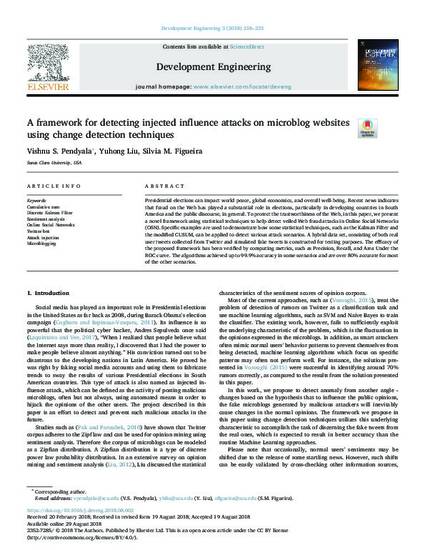
Presidential elections can impact world peace, global economics, and overall well-being. Recent news indicates that fraud on the Web has played a substantial role in elections, particularly in developing countries in South America and the public discourse, in general. To protect the trustworthiness of the Web, in this paper, we present a novel framework using statistical techniques to help detect veiled Web fraud attacks in Online Social Networks (OSN). Specific examples are used to demonstrate how some statistical techniques, such as the Kalman Filter and the modified CUSUM, can be applied to detect various attack scenarios. A hybrid data set, consisting of both real user tweets collected from Twitter and simulated fake tweets is constructed for testing purposes. The efficacy of the proposed framework has been verified by computing metrics, such as Precision, Recall, and Area Under the ROC curve. The algorithms achieved up to 99.9% accuracy in some scenarios and are over 80% accurate for most of the other scenarios.

© 2018 The Authors. Published by Elsevier Ltd. This is an open access article under the CC BY license (http://creativecommons.org/licenses/BY/4.0/).